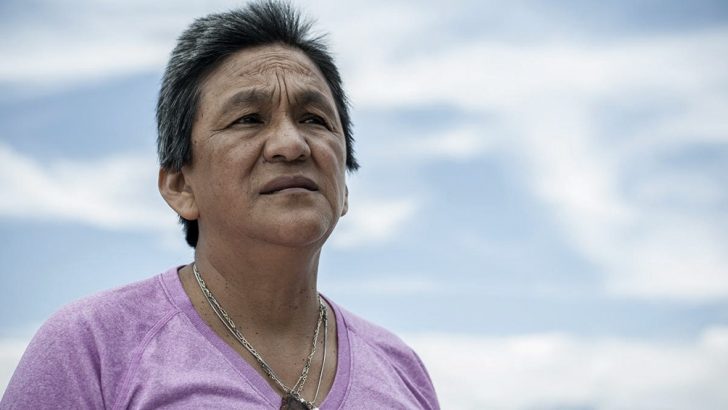CELS and Abogadas y abogados del Noroeste Argentino en Derechos Humanos y Estudios Sociales (ANDHES) submitted our complaint against the Argentine State to the Inter-American Commission on Human Rights for the harassment and criminalization that Milagro Sala hsa been subjecte to since Gerardo Morales came to power in the Jujuy government.
Our presentation this past August provided an overview of the various public manifestations Morales has made against Milagro Sala and the Tupac Armaru organization even before he came to power. The campaign to discredit and stigmatize her, already in place for some time before his election, took a sharp turn on December 10, 2015 when it incorporated the provincial judicial system. This unleashed persecution against her involving different criminal charges aimed exclusively at ensuring her detention and keeping her in pre-trial imprisonment.
Milagro Sala was put behind bars just a few weeks after Morales took power on January 16, 2016. The main reason for her detention was having organized and participated in a mobilization that culminated in the occupation of Plaza Belgrano in San Salvador de Jujuy after the governor refused to respond to multiple petitions for hearings.
At that time, the provincial executive power had announced it would take measures to require social organizations to register with the province. These measures were made known in mid-January 2016 by way of Decree 403-G-16, which established the end of the protest that had begun in December 2015 and the removal of the legal status of any organizations that remained there. It also established that protesters who remained would lose their social rights.
The decree broke up the mobilization and occupation, causing some of the social organizations to abandon the protest for fear of losing their legal status and/or access to social rights, or be subjected to costly fines or even judicial persecution.
Already deprived of liberty, Milagro Sala spend the first days of her detention in the women’s police station in San Salvador de Jujuy. On January 21 of that year she was transferred to Criminal Unit 3 for women at the Provincial Penitentiary Service.
Even though the judge presiding over her case ordered home arrest for Sala on January 29, 2016, she remained in prison. The main reason for her ongoing imprisonment was that, coincidentally, on the day she was due to be released, she was ordered detained again on parallel charges. The new charges accused her of fraud against the State, extortion and illicit association.
As of that moment, an unrelenting process of criminalization against Milagro Sala was unleashed through the use of judicial power. A chain of – or overlapping – legal actions were then mounted, or some that had been closed for different reasons were reopened; for instance, cases in which she had been deemed uninvolved years ago and from which she had been entirely exonerated.
Over time, Milagro Sala was accused of eleven criminal charges and one misdemeanor. She also went through six oral and public trials: one in federal court, four in the ordinary courts and one in misdemeanor court. Another two cases are still in the investigation stage, while three more were elevated to trial stage. All of this amidst media campaigns and speeches, including the judges and prosecutors involved in the proceedings against her.
In addition, the persecution, criminalization and harassment of Milagro Sala has had a negative impact on the Tupac Amaru neighborhood organization, which had its legal status removed for exercising the right to protest, has suffered raids, the detention of other members, and even was subjected to an intervention decreed by Gerardo Morales himself. This has all taken place in a context of harassment of Sala and her allies by senior provincial authorities, thus aggravating the conditions of her detention and particularly her physical and mental health.
The case on which we framed our complaint to the IACHR is known as the “undies case” in which Sala was accused of making a bomb threat by phone to two Jujuy police officers demanding that they release another detained member of Tupac Amaru, whose daughter had discovered her stolen clothes for sale in a market, including her underwear. One of the presumed victims was represented, several months after charges were brought, by Morales’ son and another close ally of his.
In the more than two thousand days of Milagro Sala’s detention in Jujuy, there have been various episodes of repression and criminalization targeting not only the Tupac Amaru organization but also other social movements, political parties and unions. This shows that the persecution of Milagro Sala is part of a broader policy to demobilize sectors in dissent with Jujuy society and to seriously limit their right to voice it.

